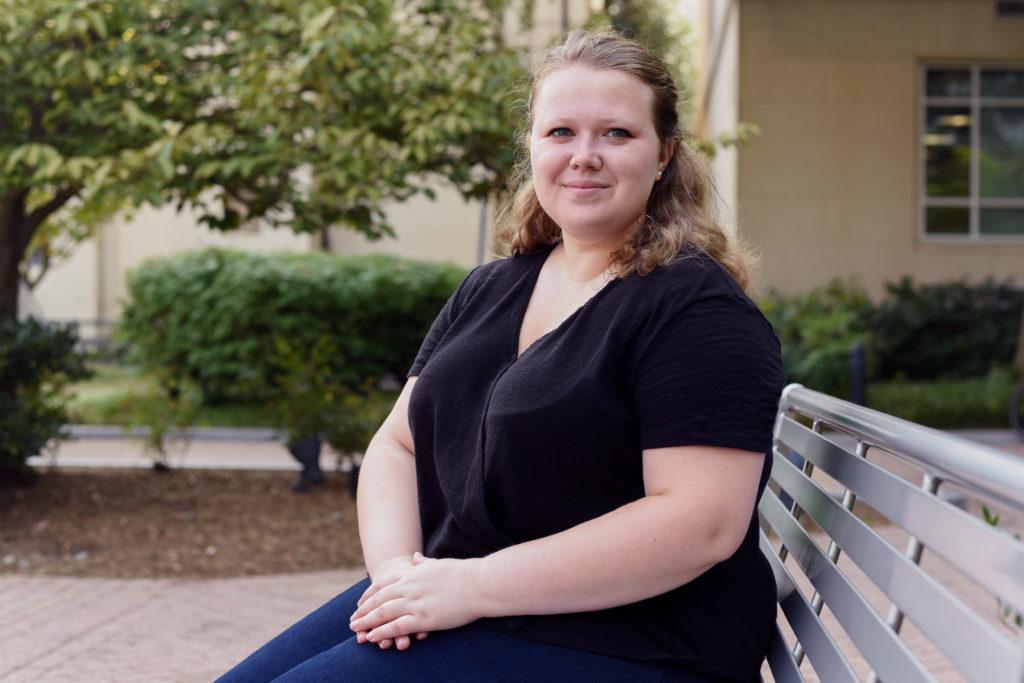Updated: Sept. 21, 2020 at 4:25 p.m.
After months of calls for campus police reform, officials reassembled the Division of Safety and Facilities’ Student Advisory Board this month to evaluate students’ demands.
Second-year graduate student Rebecca Bizzarri, the coordinator for the student advisory board, said board members convened for their first meeting of the academic year Tuesday, during which students reported to officials like GW Police Department Chief James Tate. Bizzarri said the board consists of 12 undergraduate and graduate students who will meet every three weeks throughout the school year to share feedback about campus safety and discuss initiatives.
GWPD established the student advisory board in 2018 to better connect students with the department and discuss on-campus safety concerns.
“As we enter the third academic year since the formation of the Student Advisory Board, the division remains committed to our goal of promoting transparency and collaboration between staff and students through the Student Advisory Board,” Bizzarri said in an email.
Bizzarri said board members can participate in personnel hiring, join safety walks through campus and provide input for the Return to Campus plan, as officials prioritize transparency to keep students engaged with University planning.
“Opportunities to participate in safety initiatives are ever-involving, and we are thankful to have a committed group of students willing to lend a hand and provide feedback on a number of different topics,” she said.
Tate mentioned the advisory board last month as he unveiled his vision for GWPD to promote community involvement and institute new reforms – including body-worn cameras, a training program and plans this fall to hire a community outreach officer who will meet with students on the board.
He said students beyond the board can now join the GWPD officer hiring process and interview new officers themselves. He said he plans to reach out to student organizations like the Student Association and Black Student Union to involve more students in officer hiring.
Anna Weber, the Student Association’s vice president for campus operations, said she serves on the board alongside other members of the SA, BSU and Residence Hall Association. Students spent last week’s meeting asking officials questions about how GWPD plans to address safety during the pandemic and social justice issues like the Black Lives Matter movement, she said.
Tate told board members he hopes to minimize officers’ contact with students during the pandemic, limit their presence in the area and market the department as a community-wide resource for student safety, Weber said. She said officials have welcomed students’ perspectives and she hopes GWPD can continue to build relationships with students.
“GWPD should be a resource for the community, not a burden, and I feel like being on this board is a way to make sure that that’s actually happening,” Weber said.
Weber said officials updated the board on last month’s reforms to GWPD and introduced members to The GW Guardian App, designed to replace GW PAL, connect students with GWPD and provide a new Safety Timer that monitors late-night activity. She said Scott Burnotes, the vice president for the Division of Safety & Facilities, suggested officials increase nighttime lighting on campus, as students mentioned they felt less safe at night when campus is relatively deserted.
“Because campus is less dense, it can be really, really scary at night, hence why you would look at things like lighting or video surveillance or all of those other components under safety and facilities that you can use instead of having officers patrolling campus because cops at every corner are not the solution,” she said.
SA Sen. Sam Packer, CCAS-U, who also serves on the student advisory board, said this year’s panel will grant students greater access to police officers than a city police department, adding that student activists want better communication with GWPD so they can feel safer when protesting on campus.
Earlier this year, an officer who allegedly pushed a student down several stairs outside University President Thomas Leblanc’s on-campus residence was placed on administrative leave, and officials later announced plans to reform GWPD practices. BSU wrote a letter to the department in June, demanding that officers strengthen their relationship with students.
“We wouldn’t want another incident like what happened in the spring to occur again, and hopefully with better communication, we protesters can do our action without having to risk altercations with GWPD,” Packer said.
Packer said she will maintain “constant open communication” with students as she serves on the board this fall, and she wants to ensure GWPD training and guidelines are effective in preventing violence on campus.
“It is more important than ever that people of color, LGBTQ people and activists all feel protected by our campus security, not threatened due to similarities to the police that have been acting so violently around the country,” she said.
This post has been updated to correct the following:
The Hatchet incorrectly reported that 12 undergraduate students serve on the board. There are a total of 12 undergraduate and graduate students on the board. We regret this error.








